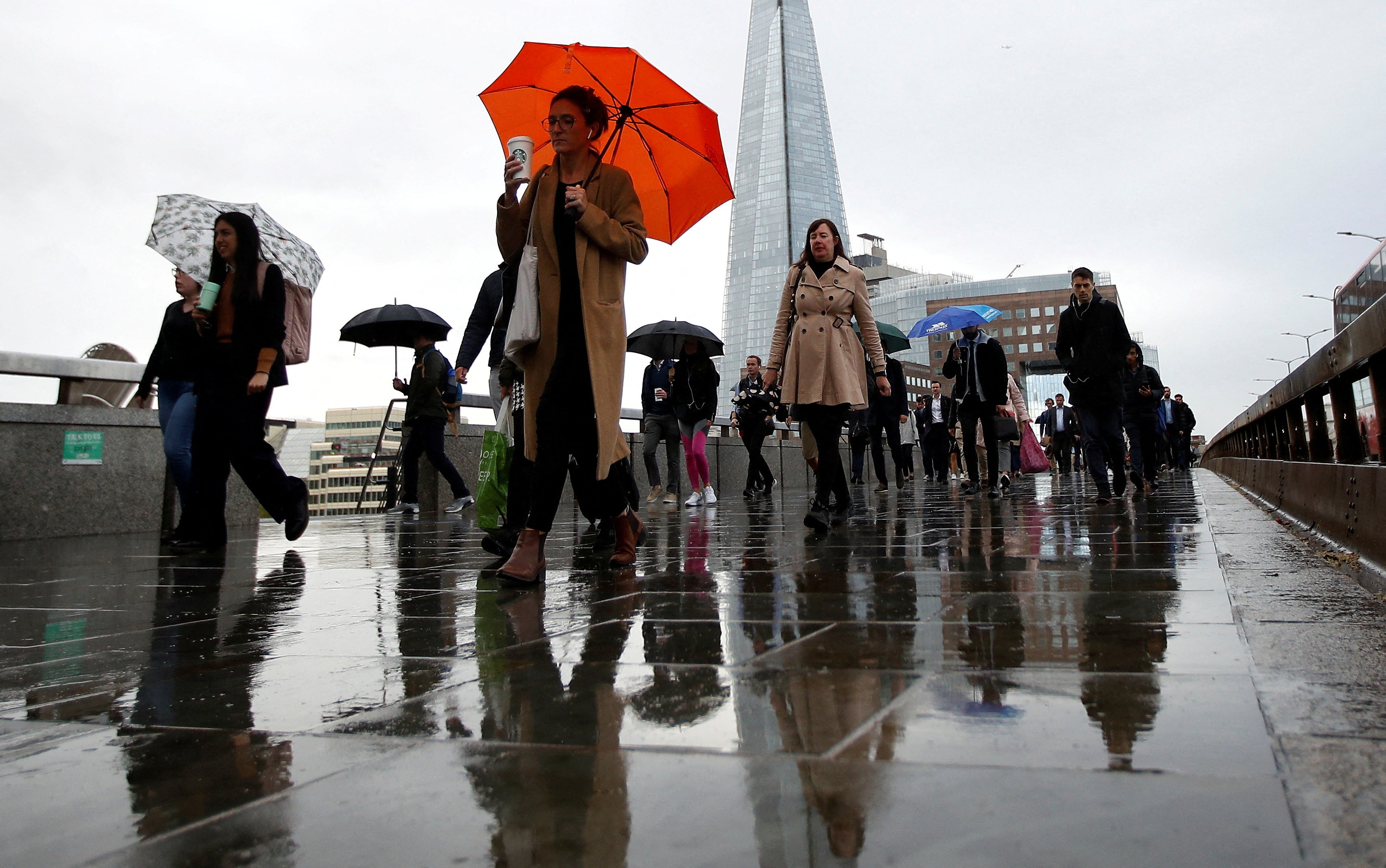Something is very wrong if unemployment and labour shortages are both rising
Employers should be able to fill vacancies during times of dire economic straits, writes James Moore


The increase in unemployment, expected as a result of the economic malaise ushered in by a series of disastrous Tory missteps, may have begun. The Office for National Statistics likes to use a rolling three-month figure for its regular missives on the subject and today’s show a slight uptick, with the rate increasing from the 3.5 per cent recorded for June to August, to 3.6 per between July and September.
Now that’s hardly a big movement. The number of people out of work and seeking employment is still down year on year (when the figure was 4.3 per cent) and by comparison to the second quarter of this year (3.8 per cent). But the high level of vacancies has started to decline as employers react to the grim outlook by slamming on the brakes, further evidence that the tide has started to turn.
If I’m right, will this make things a little easier for those employers whose prospects and/or ability to provide services have been hamstrung by their inability to find people for the posts that need filling – even when taking into account the dire economic situation?
Maybe in some cases. But by no means all. Consider the question of pay. The latest figures showed it rising by 5.7 per cent, which represents a real terms decline (2.7 per cent) when adjusted for inflation. The overall figure for pay rises, however, disguises a sharp disparity between the private sector (up 6.6 per cent) and the public sector (2.2 per cent). The gap between the two is the widest it has ever been.
Needless to say, the number of public sector vacancies continues to run at a record high. The trend of lower waged NHS staff who do vital jobs quitting in favour of working at Tesco or its peers looks set to continue for some time. Ditto education. Who would blame them? Tesco and the other supermarkets have responded to the cost of living crisis by increasing staff wages by a considerable amount. That looks set to help with any labour shortages they have been experiencing.
People like to talk about careers such as nursing and teaching as “vocations”. “You don’t do it for the money,” is an oft-heard saying. But you can’t do it at all if your pay packet doesn’t cover the rent, or the shopping bills. With wages down by 6.1 per cent across the public sector in inflation-adjusted terms, an increasing number of people are in that position. Is it any wonder that the number of days lost to strikes is at its highest level in years?
It may take unemployment rising by a considerable amount to ease the pressure on public services. And there are no guarantees that it will even if it does. Another ongoing problem is the continued rise in the number of “economically inactive” people – those who don’t have work and aren’t actively seeking it. The number hit a new record (21.6 per cent) as a proportion of the working-age population (aged 16-64).
A major component of this is older workers leaving the labour market altogether. They are often in that position through long-term sickness. True, the ONS identified younger workers as the major contributors to the increase this time around. They mightn’t represent such an issue if this is down to them, say, becoming students. It would be economically beneficial for them to add to their skills and employability.
But the wider problem remains. Many “inactive” workers who have left the labour market possess the type of skills Britain is desperately short of. Tempting, or helping, them back ought to deliver an economic boost.
Trouble is, it’s far from clear that the government is even aware of the problem, let alone developing sensible ideas for how to tackle it. Thoughtful policymaking has, regrettably, been tipped into the Thames in favour of political infighting and indulging in bad behaviour. Booze ups in Downing Street. Bullying staff. You know the drill.
The other option for plugging the gaps in the labour market is allowing more immigration, an option favoured by the CBI which thinks (rightly) that it could help boost the growth Britain conspicuously lacks.
We really need both to be addressed. The trouble is that the Tory Party seems to prefer the idea of driving a clapped-out hatchback on the hard shoulder flying a union flag in favour of something with enough juice to at least occupy the slow lane if not better.
So important sectors are going to be experiencing shortages for some time to come, even as unemployment rises. And that in itself is hardly something to welcome.






Join our commenting forum
Join thought-provoking conversations, follow other Independent readers and see their replies
Comments